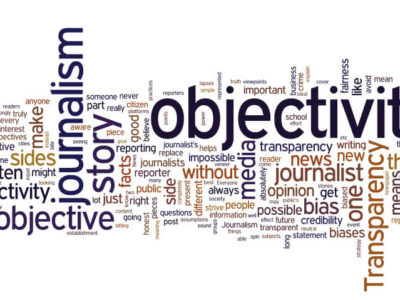When it comes down to journalistic dilemmas, no one has time to thoroughly reference the Society of Professional Journalists’ Code of Ethics to reach a decision. Deadlines, source reliability and other ethical questions are no joke. What should you do? Though journalists do have to think about the repercussions of their articles, they should not deter a reporter from covering or publishing a story. Pam Lehman, a crime reporter for The Morning Call with over 20 years of experience in journalism, said stakeholders are not her main concern when writing an article–the truth is. “What always matters is ‘Is this a story?’ [and] ‘Have we verified all the information?’ I have never had an editor tell me not to publish a story because of concerns of how it may affect an advertiser or stakeholder,” Lehman said.
To prevent any ethical problems with sources or their quotes, journalists can take steps to make sure every quote belongs to an identifiable source. “The only ethical code I really strive to meet always is to get on-the-record information. We almost never use off-the-record sources. I also make sure that I constantly update my editor of my progress. If I do learn of information off the record, our first priority is to try and attribute it to a source,” Lehman said.
An easy way to prevent problems while reporting is to contact as many sources as possible. Generally, when a reporter reaches out to dozens of sources, only a few respond. Also, as any journalist on a deadline knows, sources take a while to respond or even agree to be interviewed. It always helps to reach out to sources as early as possible to provide enough time for interviews.
In an age where immediate news is the norm, some journalists have difficulties keeping up with the speed while keeping the facts straight. While journalists live for getting the latest story first, they aren’t doing their job unless they deliver the story right. The pressure to have the most newsworthy story can drive journalists to fabricate stories. No one wants to become the next Stephen Glass, infamous for fabricating story after story. Once reporters have a reputation of making a major mistake or committing some type of fraud, they can kiss any career in journalism goodbye.
“The most important factor is to be accurate and attribute all information in a story so there’s no doubt of its veracity. My name and contact information is listed with every article, and if something isn’t correct, my reputation as an accurate and fair reporter will be damaged,” Lehman said. Just like how you run to your best friends when you’re having a relationship problem, it never hurts to get the advice of someone you trust when it comes to ambiguities with your reporting and stories. Writing articles should be a collaborative process involving the whole newsroom. That’s why newsrooms are being built as open spaces making sure all staff members are involved in the process.
For Lehman, she consults her editor. “I consider his advice and careful consideration invaluable. He’s a great sounding board for helping me wade through the clutter and making a story compelling and clear,” Lehman said. Student reporters can do the same in the newsroom by reaching out to their editors or in the classroom reaching out to their professors, who usually have experience in the journalism field.
Journalists should expect to encounter ethical problems like receiving gifts from sources, having an unnamed source or reporting a cover up involving local officials during their time in the field. Matt Assad, senior reporter at The Morning Call and journalist for more than 30 years, said “not a week or two goes by” without some ethical dilemma entering his stories. He rarely publishes anything in the paper without first discussing it with other reporters. It never happens that a reporter “can’t get an answer out of the newsroom.”
Another important lesson learned while dealing with difficult decisions is that not everyone will be happy with the outcome. Acting as a community or worldwide watchdog is not always a favorite role of the media but it never ceases to be a necessary one. While the truth may not be popular or please all audiences, journalists have an obligation to report it no matter what. “I often receive backlash for my stories. Often from the people who are arrested who claim police weren’t being truthful. I tell them we always follow the case as it proceeds through court and will write about their defense,” Lehman said. Journalists cannot let negative comments prevent them from doing their job. Backlash is rarely aimed directly at the reporter as an individual and is more focused on the reporter’s job of telling the truth.
Being a journalist is not a simple job where a reporter can push off the responsibility to someone else. A journalist must be dedicated to promoting the truth to the public. While this can be a daunting task, there are many resources, like ethical codes or people with newsroom experience, to reference for guidance. “Have a certain basis of integrity. Always do the right thing. Always feel free to discuss ideas in the paper,” Assad said. “If you’re on your own, go with your gut.”

















